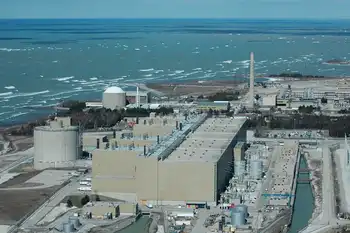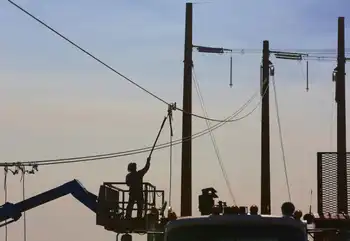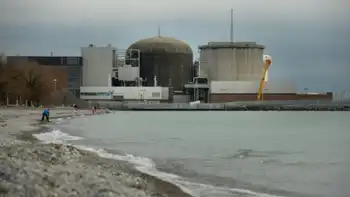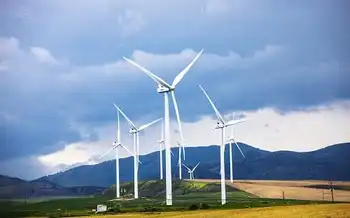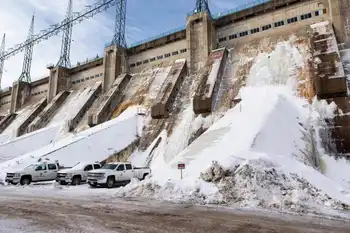Funding Approved for Bruce C Project Exploration

Electrical Testing & Commissioning of Power Systems
Our customized live online or in‑person group training can be delivered to your staff at your location.

- Live Online
- 12 hours Instructor-led
- Group Training Available
Bruce C Project advances Ontario clean energy with NRCan funding for nuclear reactors, impact assessment, licensing, and Indigenous engagement, delivering reliable baseload power and low-carbon electricity through pre-development studies at Bruce Power.
Key Points
A proposed nuclear build at Bruce Power, backed by NRCan funding for studies, licensing, and impact assessment to expand clean power.
✅ Up to $50M NRCan support for pre-development
✅ Focus: feasibility, impact assessment, licensing
✅ Early Indigenous and community engagement
Canada's clean energy landscape received a significant boost recently with the announcement of federal funding for the Bruce Power's Bruce C Project. Natural Resources Canada (NRCan) pledged up to $50 million to support pre-development work for this potential new nuclear build on the Bruce Power site. This collaboration between federal and provincial governments signifies a shared commitment to a cleaner energy future for Ontario and Canada.
The Bruce C Project, if it comes to fruition, has the potential to be a significant addition to Ontario's clean energy grid. The project envisions constructing new nuclear reactors at the existing Bruce Power facility, located on the shores of Lake Huron. Nuclear energy is a reliable source of clean electricity generation, as evidenced by Bruce Power's operating record during the pandemic, producing minimal greenhouse gas emissions during operation.
The funding announced by NRCan will be used to conduct crucial pre-development studies. These studies will assess the feasibility of the project from various angles, including technical considerations, environmental impact assessments, and Indigenous and community engagement, informed by lessons from a major refurbishment that required a Bruce reactor to be taken offline, to ensure thorough planning. Obtaining a license to prepare the site and completing an impact assessment are also key objectives for this pre-development phase.
This financial support from the federal government aligns with both national and provincial clean energy goals. The "Powering Canada Forward" plan, spearheaded by NRCan, emphasizes building a clean, reliable, and affordable electricity system across the country. Ontario's "Powering Ontario's Growth" plan echoes these objectives, focusing on investment options, such as the province's first SMR project, to electrify the province's economy and meet its growing clean energy demand.
"Ontario has one of the cleanest electricity grids in the world and the nuclear industry is leading the way," stated Mike Rencheck, President and CEO of Bruce Power. He views this project as a prime example of collaboration between federal and provincial entities, along with the private sector, where recent manufacturing contracts underscore industry capacity.
Nuclear energy, however, remains a topic of debate. While proponents highlight its role in reducing greenhouse gas emissions and providing reliable baseload power, opponents raise concerns about nuclear waste disposal and potential safety risks. The pre-development studies funded by NRCan will need to thoroughly address these concerns as part of the project's evaluation.
Transparency and open communication with local communities and Indigenous groups will also be crucial for the project's success. Early engagement activities facilitated by the funding will allow for open dialogue and address any potential concerns these stakeholders might have.
The Bruce C Project is still in its early stages. The pre-development work funded by NRCan will provide valuable data to determine the project's viability. If the project moves forward, it has the potential to significantly contribute to Ontario's clean energy future, while also creating jobs and economic benefits for local communities and suppliers.
However, the project faces challenges. Public perception of nuclear energy and the lengthy regulatory process are hurdles that will need to be addressed, as debates around the Pickering B refurbishment have highlighted in Ontario. Additionally, ensuring cost-effectiveness and demonstrating the project's long-term economic viability will be critical for securing broader support.
The next few years will be crucial for the Bruce C Project. The pre-development work funded by NRCan will be instrumental in determining its feasibility. If successful, this project could be a game-changer for Ontario's clean energy future, building on the province's Pickering life extensions to strengthen system adequacy, offering a reliable, low-carbon source of electricity for the province and beyond.





